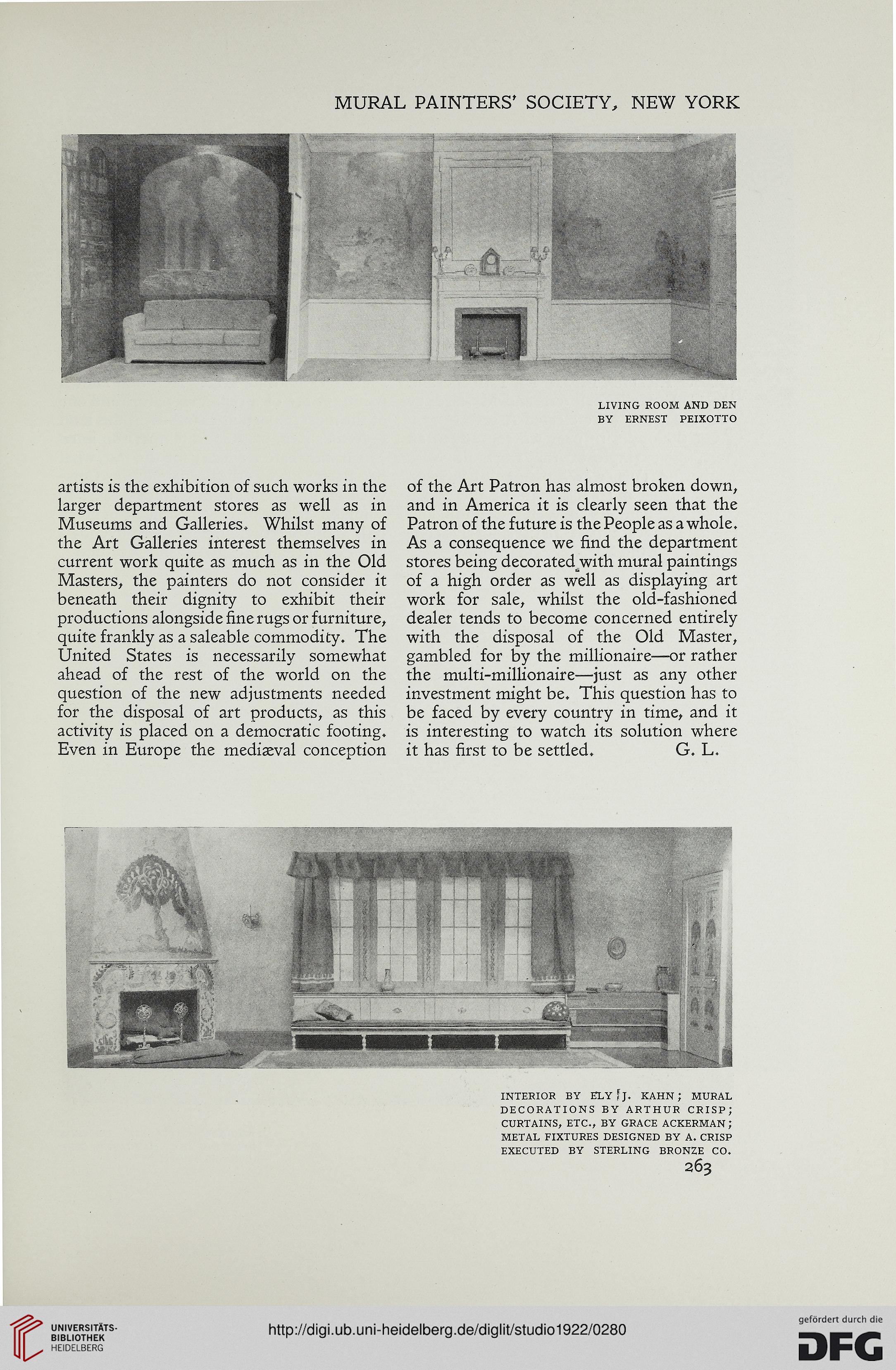MURAL PAINTERS' SOCIETY, NEW YORK
LIVING ROOM AND DEN
BY ERNEST PEIXOTTO
artists is the exhibition of such works in the
larger department stores as well as in
Museums and Galleries* Whilst many of
the Art Galleries interest themselves in
current work quite as much as in the Old
Masters, the painters do not consider it
beneath their dignity to exhibit their
productions alongside fine rugs or furniture,
quite frankly as a saleable commodity. The
United States is necessarily somewhat
ahead of the rest of the world on the
question of the new adjustments needed
for the disposal of art products, as this
activity is placed on a democratic footing.
Even in Europe the mediaeval conception
of the Art Patron has almost broken down,
and in America it is clearly seen that the
Patron of the future is the People as a whole.
As a consequence we find the department
stores being decorated^with mural paintings
of a high order as well as displaying art
work for sale, whilst the old-fashioned
dealer tends to become concerned entirely
with the disposal of the Old Master,
gambled for by the millionaire—or rather
the multi-millionaire—just as any other
investment might be. This question has to
be faced by every country in time, and it
is interesting to watch its solution where
it has first to be settled. G. L.
INTERIOR BY EXY?J. KAHN; MURAL
DECORATIONS BY ARTHUR CRISP;
CURTAINS, ETC., BY GRACE ACKERMAN;
METAL FIXTURES DESIGNED BY A. CRISP
EXECUTED BY STERLING BRONZE CO.
263
LIVING ROOM AND DEN
BY ERNEST PEIXOTTO
artists is the exhibition of such works in the
larger department stores as well as in
Museums and Galleries* Whilst many of
the Art Galleries interest themselves in
current work quite as much as in the Old
Masters, the painters do not consider it
beneath their dignity to exhibit their
productions alongside fine rugs or furniture,
quite frankly as a saleable commodity. The
United States is necessarily somewhat
ahead of the rest of the world on the
question of the new adjustments needed
for the disposal of art products, as this
activity is placed on a democratic footing.
Even in Europe the mediaeval conception
of the Art Patron has almost broken down,
and in America it is clearly seen that the
Patron of the future is the People as a whole.
As a consequence we find the department
stores being decorated^with mural paintings
of a high order as well as displaying art
work for sale, whilst the old-fashioned
dealer tends to become concerned entirely
with the disposal of the Old Master,
gambled for by the millionaire—or rather
the multi-millionaire—just as any other
investment might be. This question has to
be faced by every country in time, and it
is interesting to watch its solution where
it has first to be settled. G. L.
INTERIOR BY EXY?J. KAHN; MURAL
DECORATIONS BY ARTHUR CRISP;
CURTAINS, ETC., BY GRACE ACKERMAN;
METAL FIXTURES DESIGNED BY A. CRISP
EXECUTED BY STERLING BRONZE CO.
263




